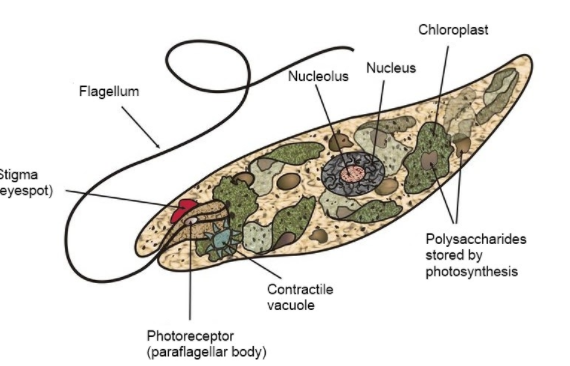
A unicellular organism has?
A) Just one cell
B) many cells
C) few cells
D) no cells
Answer
447.3k+ views
Hint: All living organisms possess life and are made up of basic unit structures called cells. An organism consists of one or more cells. We can divide organisms Depending on the number of cells, they are Unicellular and multicellular.
Complete answer:
We can understand the meaning of multicellular and unicellular below.
i) Multicellular organism: Multicellular organism is one that is made of many cells are called multicellular organisms. Examples are plants and animals.
ii) Unicellular organisms: Unicellular organisms are capable of independent existence. The second feature is that it can perform the essential functions of life. It is defined as the one which consists of only one cell is called a unicellular organism. The unicellular organisms are simple primitive prokaryotes like BGA, amoeba which lack a definite nucleus. They do not have membrane-bound organelles like mitochondria, Golgi, endoplasmic reticulum. The genetic material present is circular DNA which is suspended in the cytoplasm. The diagram below shows the unicellular organism Euglena.

Many unicellular organisms live in extreme environments, such as hot springs, thermal oceans, frozen tundra, vents and polar ice. These unicellular organisms are called extremophiles because of their property of existing in extreme places. There are six kingdoms in all, and four of those focus mainly on two big groups of prokaryotic cells and the other is eukaryotic cells. If we look at the options, only option A that is only one cell justifies the meaning of unicellular.
Therefore the correct answer is option ‘A’.
Note: Robert Hooke, had studied and discovered the cell from a thin louse of cork. But that was the dead cell. Anton Van Leeuwenhoek was the first person who observed few living cells capable of moving. Such as bacteria, protozoa, spermatozoa and red blood corpuscles under his own designed microscope.
Complete answer:
We can understand the meaning of multicellular and unicellular below.
i) Multicellular organism: Multicellular organism is one that is made of many cells are called multicellular organisms. Examples are plants and animals.
ii) Unicellular organisms: Unicellular organisms are capable of independent existence. The second feature is that it can perform the essential functions of life. It is defined as the one which consists of only one cell is called a unicellular organism. The unicellular organisms are simple primitive prokaryotes like BGA, amoeba which lack a definite nucleus. They do not have membrane-bound organelles like mitochondria, Golgi, endoplasmic reticulum. The genetic material present is circular DNA which is suspended in the cytoplasm. The diagram below shows the unicellular organism Euglena.

Many unicellular organisms live in extreme environments, such as hot springs, thermal oceans, frozen tundra, vents and polar ice. These unicellular organisms are called extremophiles because of their property of existing in extreme places. There are six kingdoms in all, and four of those focus mainly on two big groups of prokaryotic cells and the other is eukaryotic cells. If we look at the options, only option A that is only one cell justifies the meaning of unicellular.
Therefore the correct answer is option ‘A’.
Note: Robert Hooke, had studied and discovered the cell from a thin louse of cork. But that was the dead cell. Anton Van Leeuwenhoek was the first person who observed few living cells capable of moving. Such as bacteria, protozoa, spermatozoa and red blood corpuscles under his own designed microscope.
Recently Updated Pages
Master Class 11 Economics: Engaging Questions & Answers for Success

Master Class 11 Accountancy: Engaging Questions & Answers for Success

Master Class 11 English: Engaging Questions & Answers for Success

Master Class 11 Social Science: Engaging Questions & Answers for Success

Master Class 11 Biology: Engaging Questions & Answers for Success

Master Class 11 Physics: Engaging Questions & Answers for Success

Trending doubts
Convert 200 Million dollars in rupees class 7 maths CBSE

How many crores make 10 million class 7 maths CBSE

Write a pair of integers whose sum gives i Zero ii class 7 maths CBSE

Collective noun a of sailors class 7 english CBSE

What is a grid and how does it help us class 7 social science CBSE

Why does the earth rotate counterclockwise class 7 social science CBSE





